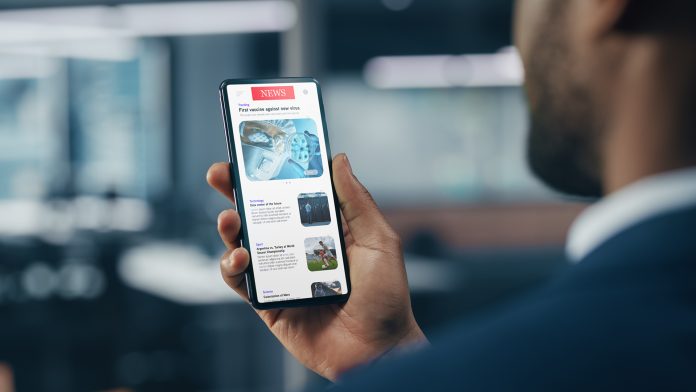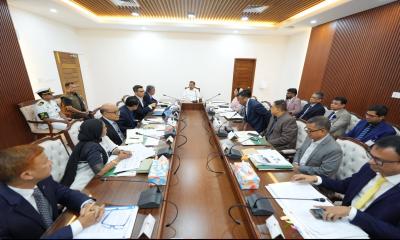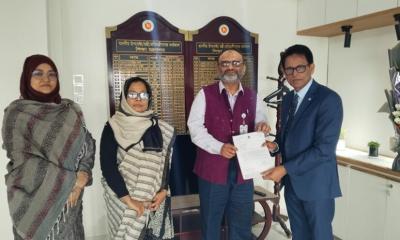A recent national survey has shown that more people in Bangladesh rely on mobile phones for news than traditional media.
While the public’s trust in the media remains intact, they view political, government, and influential figures’ interference as significant barriers to the delivery of unbiased news.
The survey was conducted by the Bangladesh Bureau of Statistics (BBS) on behalf of the Media Reform Commission, formed by the interim government.
It comes after widespread dissatisfaction with the media’s role during the July uprising.
This is the first large-scale, nationwide survey on media use in Bangladesh.
According to the survey, while fewer people are reading print newspapers, many are turning to their mobile phones to access online news. In times of national disasters or crises, people still rely on television for information.
However, radio has seen a steep decline in usage as an information source.
The public has expressed a desire for the media to remain independent, free from government and political influence.
Despite this, most respondents feel that Bangladesh Television and Bangladesh Betar should remain under government control.
The survey results indicate that 73% of participants do not read printed newspapers, with 46% saying they simply don’t feel the need to.
When it comes to television, 53% of people also said they don’t watch it.
However, 65% of respondents confirmed that they still watch TV.
Radio has been the hardest hit, with 94% of respondents stating that they no longer listen to it.
Of those, 54% said they don’t see the need to, while 35% mentioned that they don’t have access to a radio.
From January 1 to January 7, responses were collected from people aged 10 and above in 45,000 households across 64 districts.
The survey sheds light on how people are consuming news, their changing habits, and their trust in the media, as well as the public`s view on media independence.
The results show that although printed newspapers are no longer widely read, 59% of participants access online versions of the news on their mobile phones.
Only 2.5% of people said they read online versions of newspapers on computers, laptops, or tablets.
Overall, 88% of those surveyed use mobile phones to consume media, while only 7% use computers for the same purpose.
When it comes to social media, 31% of respondents trust Facebook as their source for news, followed by YouTube at 16.5%.
However, when it comes to learning or gaining knowledge, 42% of respondents consider teachers to be more reliable than traditional media sources.
Teachers are regarded as the most trustworthy source of information.
This shift in how people consume news highlights the growing influence of digital media and social platforms, while traditional forms like print, radio, and even television seem to be on the decline in the eyes of many.














-20260222063838.webp)



















